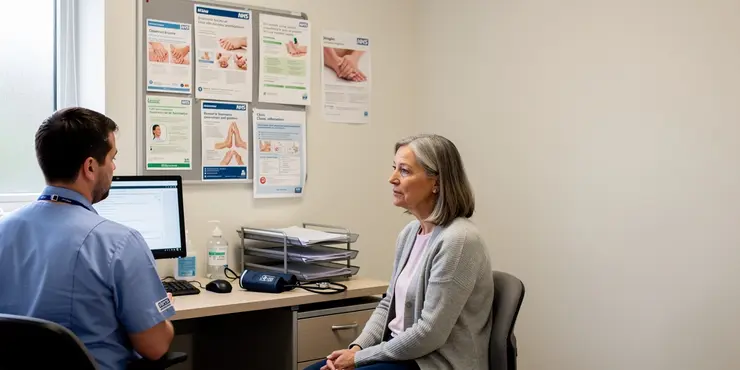
Find Help
More Items From Ergsy search
-
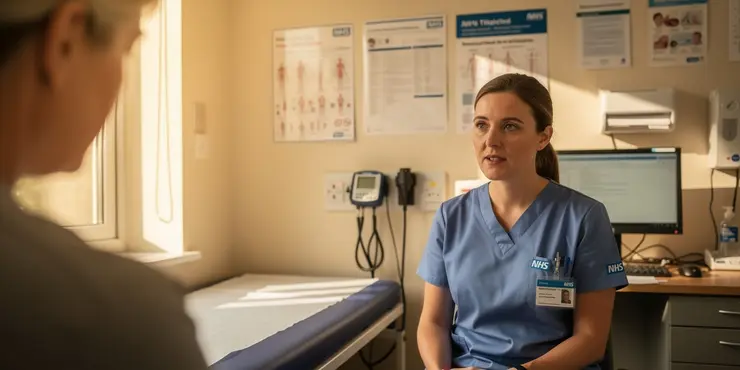
What treatments are available for shingles?
Relevance: 100%
-
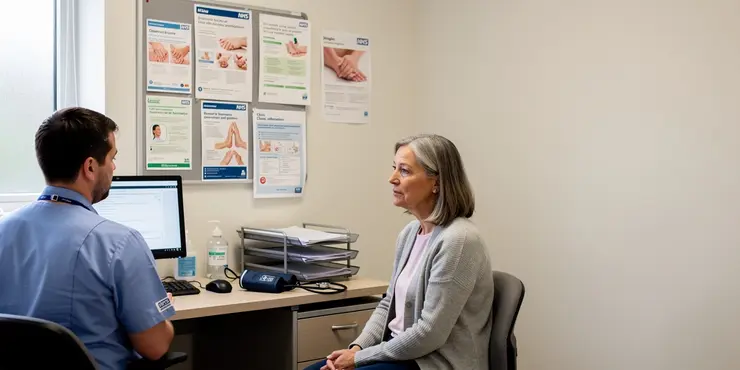
What treatments are available for shingles?
Relevance: 99%
-
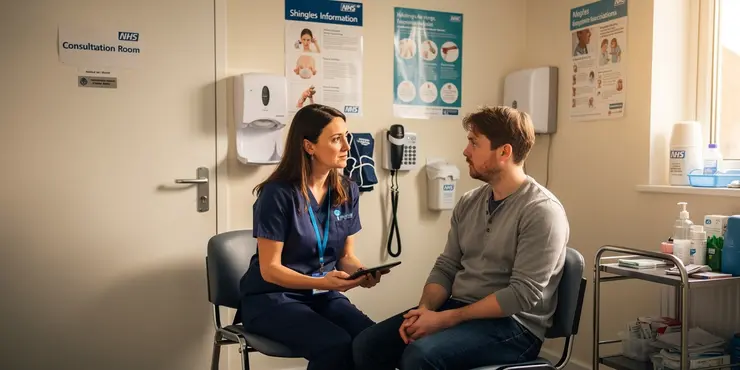
What is shingles?
Relevance: 85%
-
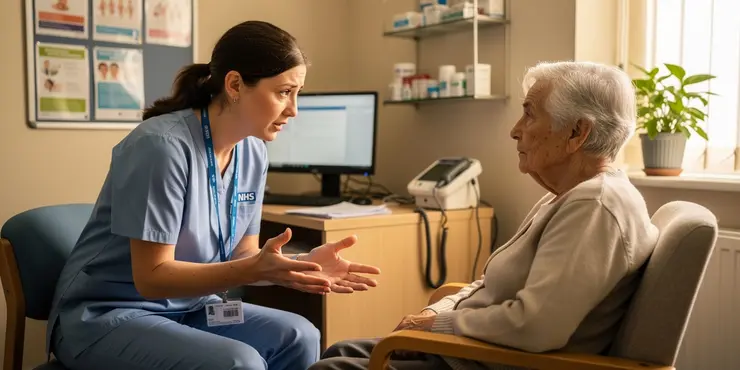
What is Shingles?
Relevance: 84%
-
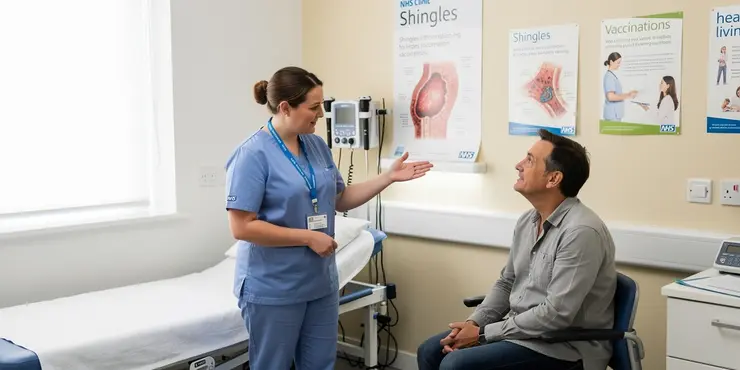
Is shingles contagious?
Relevance: 81%
-
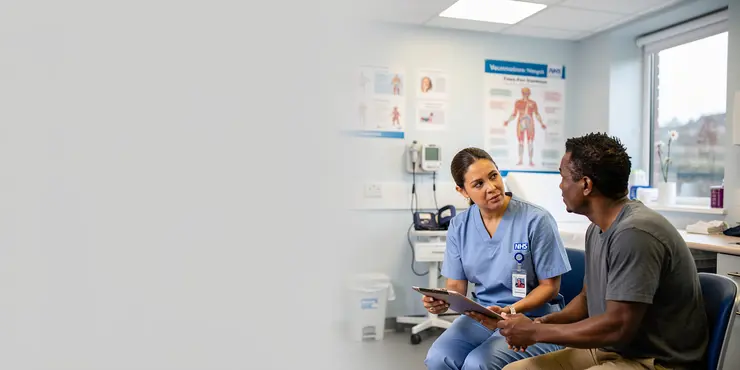
What causes shingles?
Relevance: 80%
-
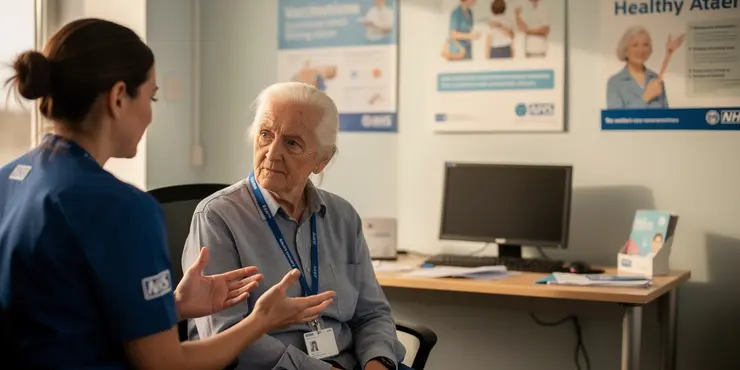
Can shingles be prevented?
Relevance: 78%
-
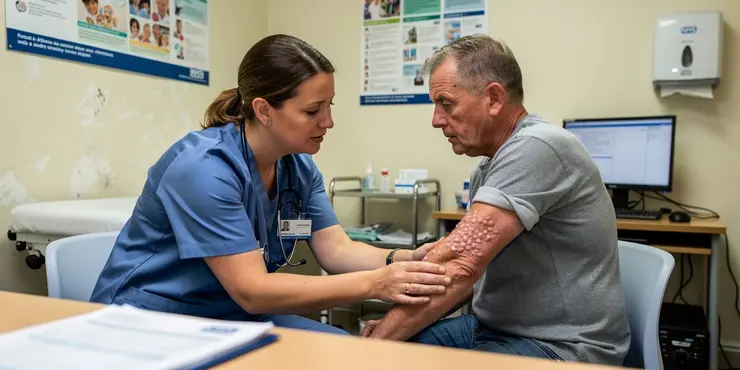
How is shingles diagnosed?
Relevance: 78%
-
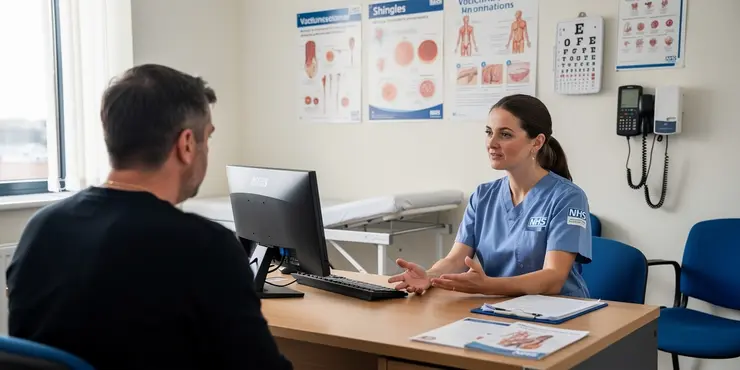
What causes shingles?
Relevance: 78%
-
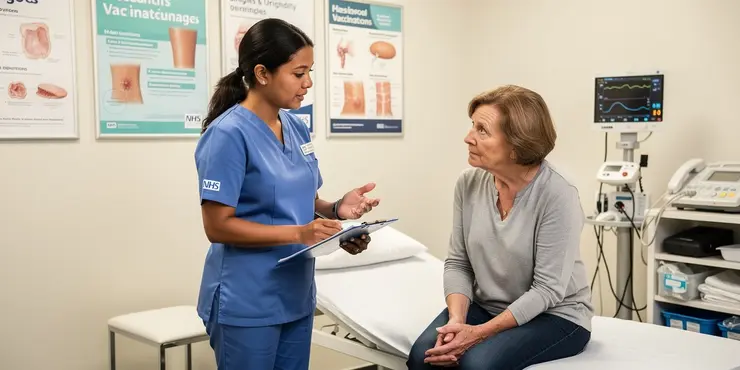
Is shingles contagious?
Relevance: 77%
-
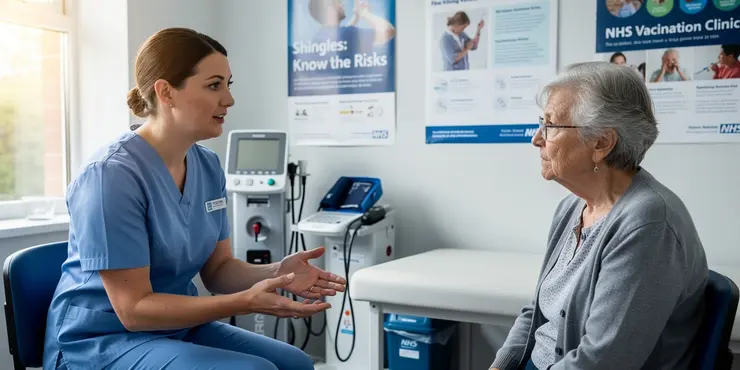
Are there any complications associated with shingles?
Relevance: 76%
-
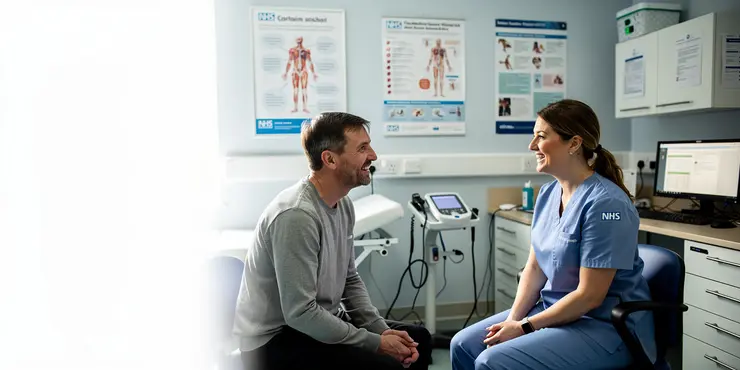
Can stress trigger shingles?
Relevance: 76%
-
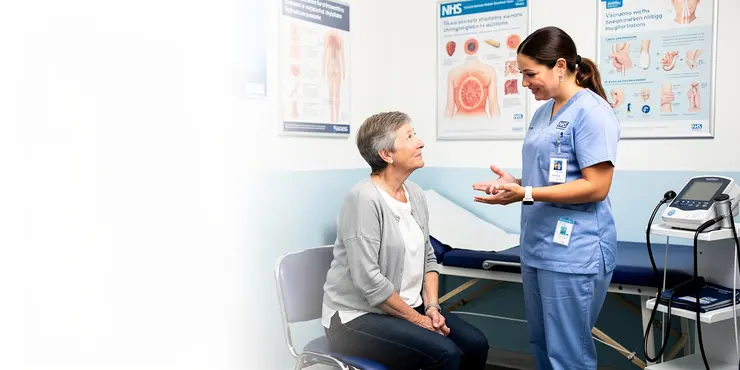
What are the symptoms of shingles?
Relevance: 76%
-
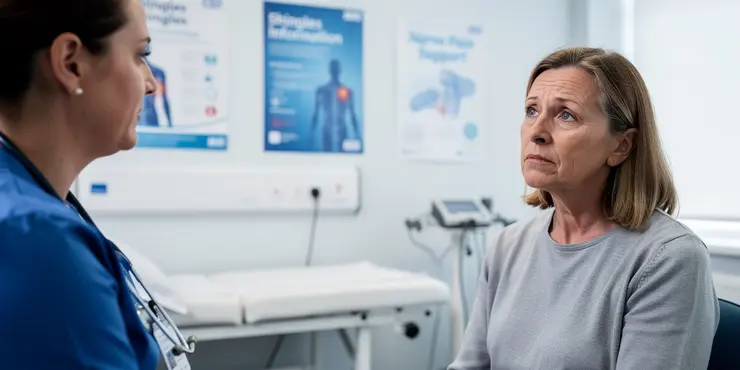
Are there any complications associated with shingles?
Relevance: 75%
-
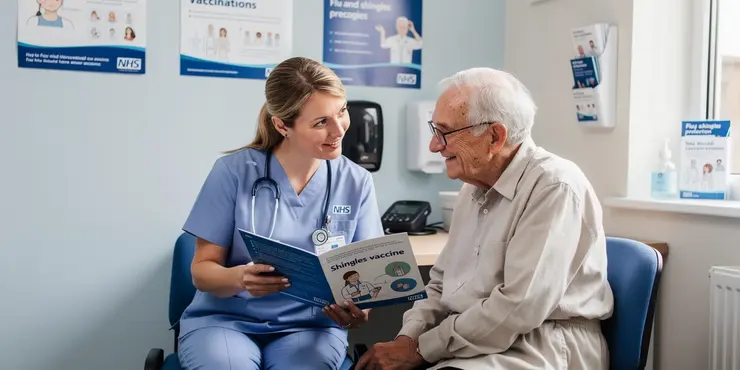
Is the shingles vaccine safe?
Relevance: 74%
-
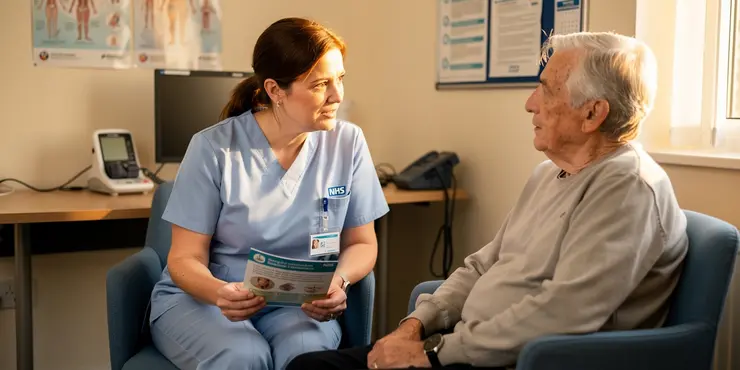
Can shingles be prevented?
Relevance: 74%
-
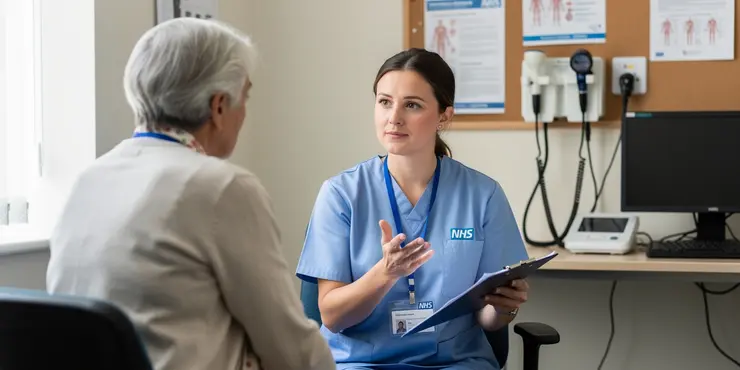
Who is at risk of developing shingles?
Relevance: 74%
-
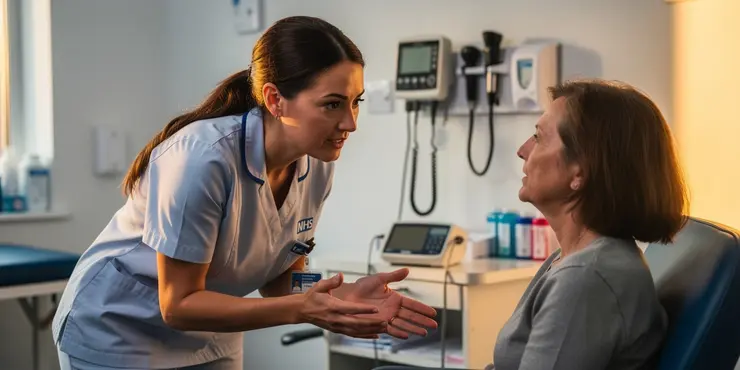
Can stress trigger shingles?
Relevance: 74%
-
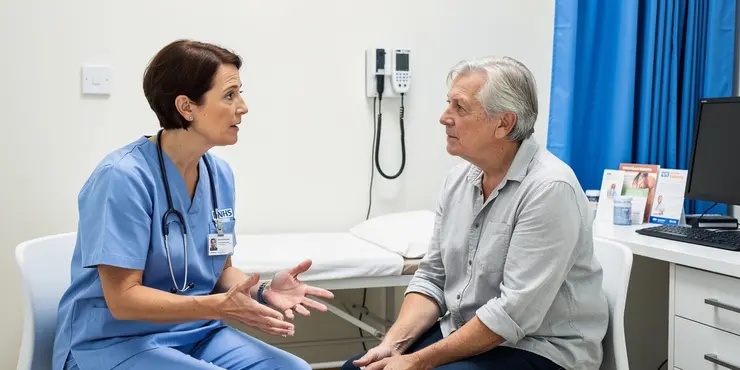
Can the shingles vaccine cause chickenpox?
Relevance: 70%
-
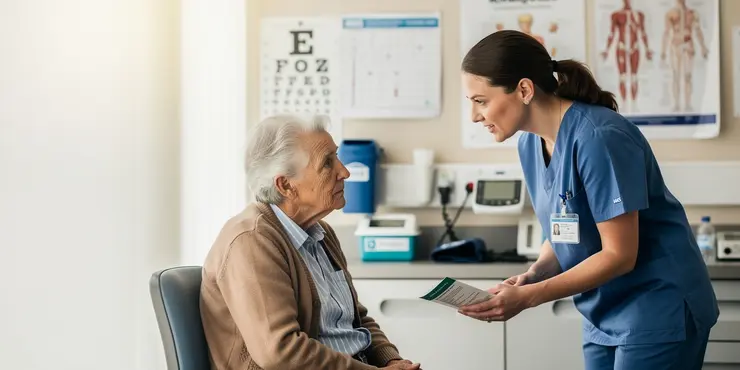
Can the shingles vaccine cause chickenpox?
Relevance: 69%
-
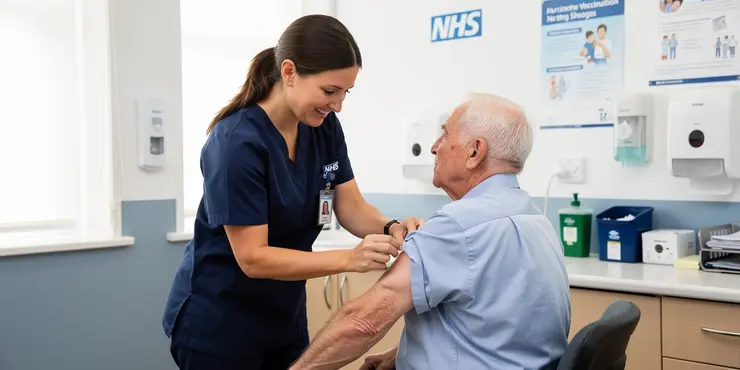
At what age should one get the shingles vaccine?
Relevance: 67%
-
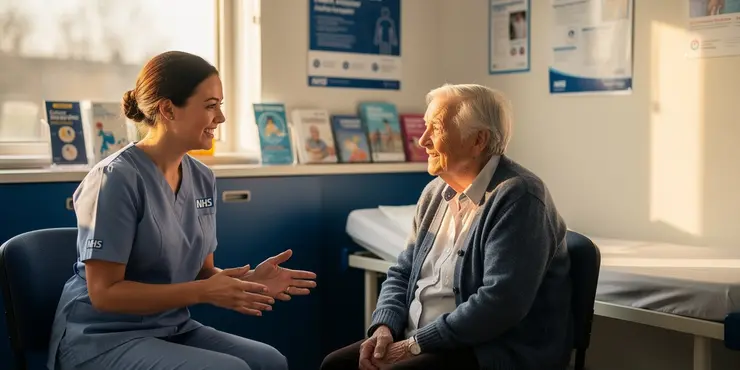
At what age should one get the shingles vaccine?
Relevance: 65%
-
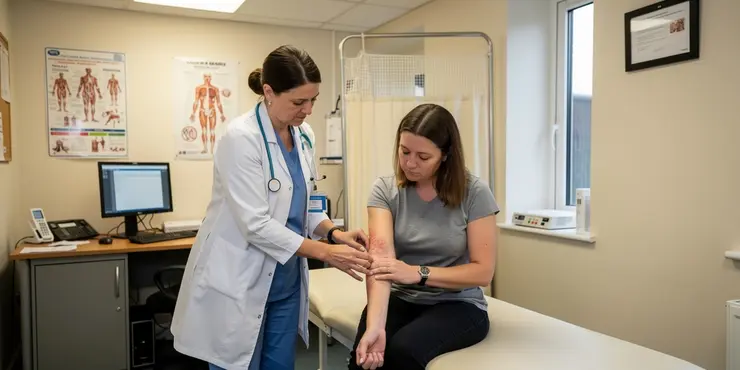
How is shingles diagnosed?
Relevance: 57%
-

Who is at risk of developing shingles?
Relevance: 51%
-
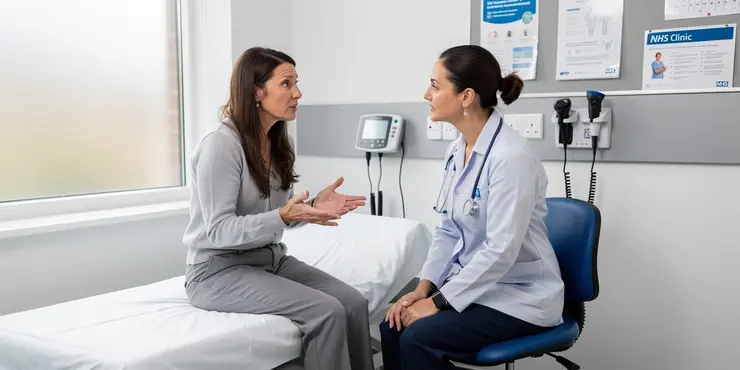
What should I do if I think I have shingles?
Relevance: 51%
-
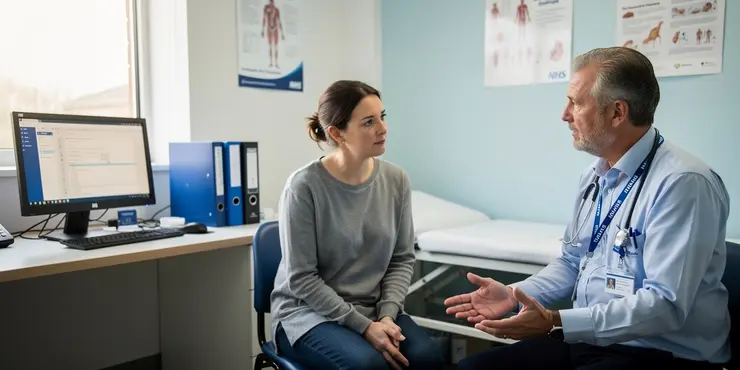
How long does a shingles outbreak last?
Relevance: 50%
-
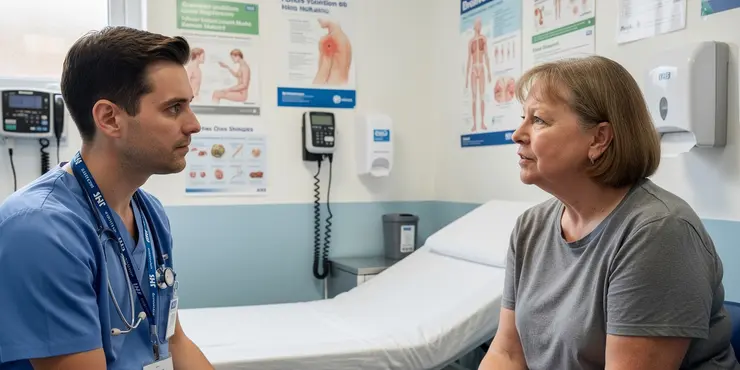
How long does a shingles outbreak last?
Relevance: 49%
-
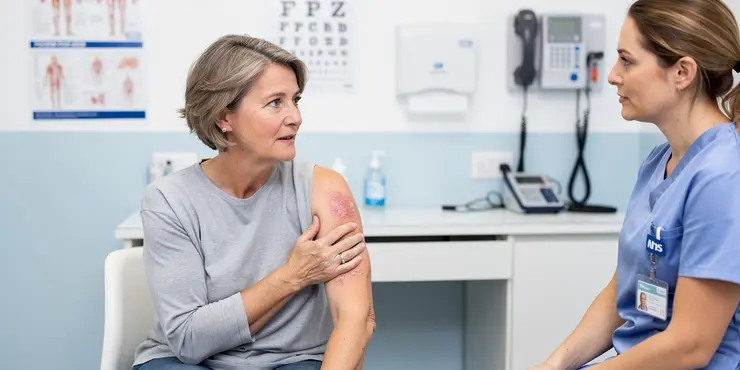
What is postherpetic neuralgia?
Relevance: 45%
-
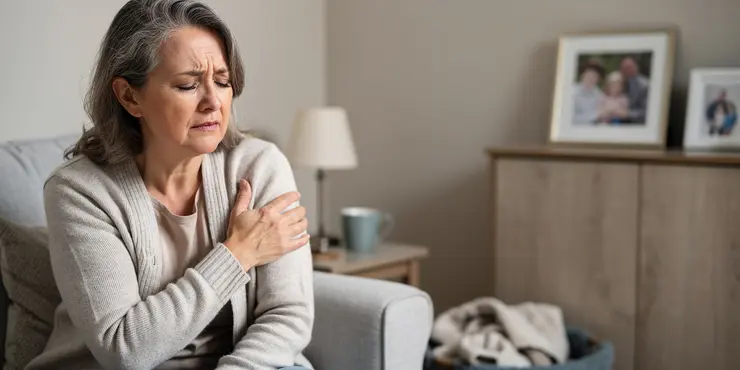
What is postherpetic neuralgia?
Relevance: 43%
-
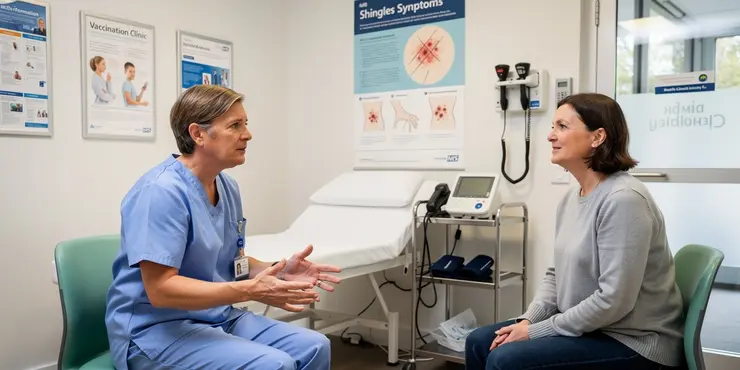
What are the symptoms of shingles?
Relevance: 34%
-
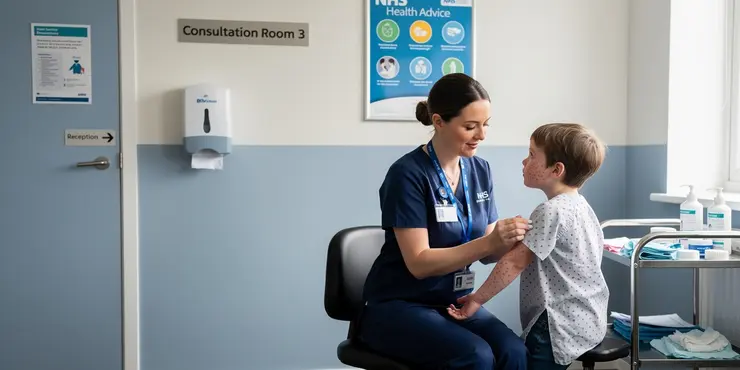
What is the treatment for chickenpox?
Relevance: 34%
-
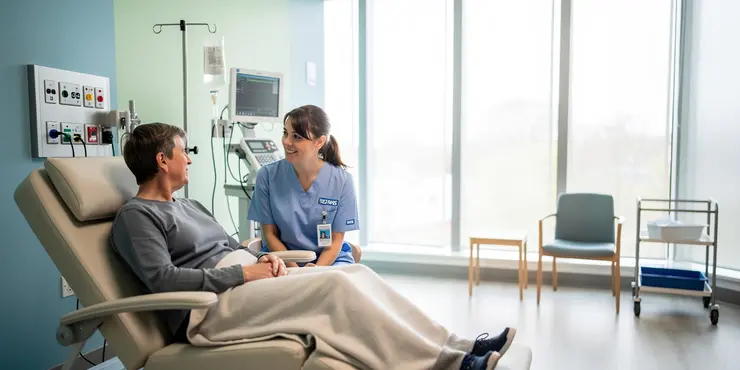
Having chemotherapy and other treatments in the Day Treatment Unit
Relevance: 32%
-
Is there a treatment for measles?
Relevance: 32%
-
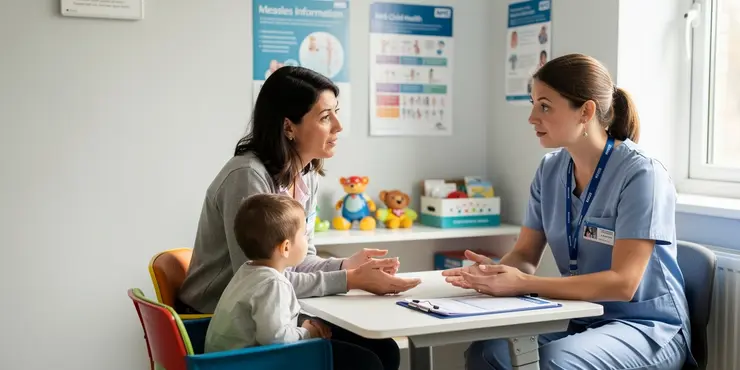
Is there a treatment for measles?
Relevance: 31%
-
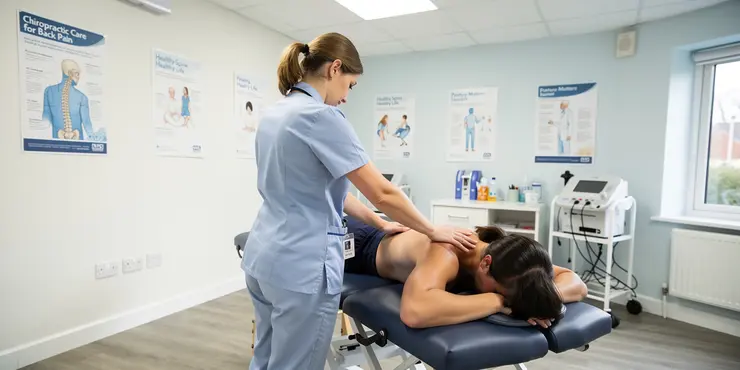
Are chiropractic treatments safe?
Relevance: 31%
-
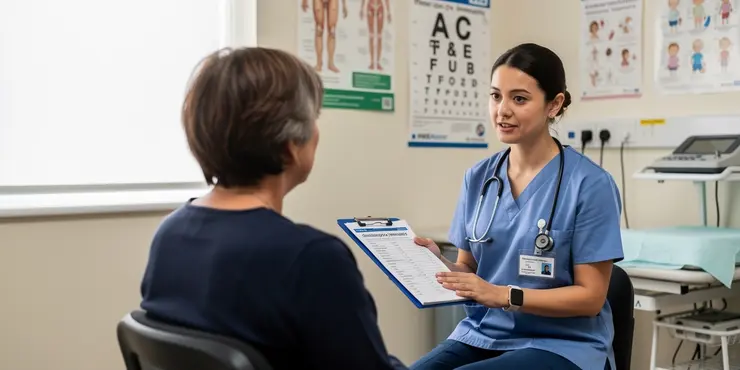
Can you get chickenpox more than once?
Relevance: 31%
-
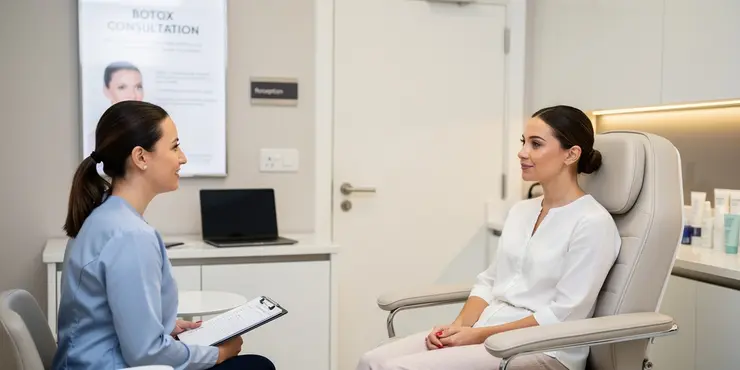
Is Botox treatment expensive?
Relevance: 31%
-
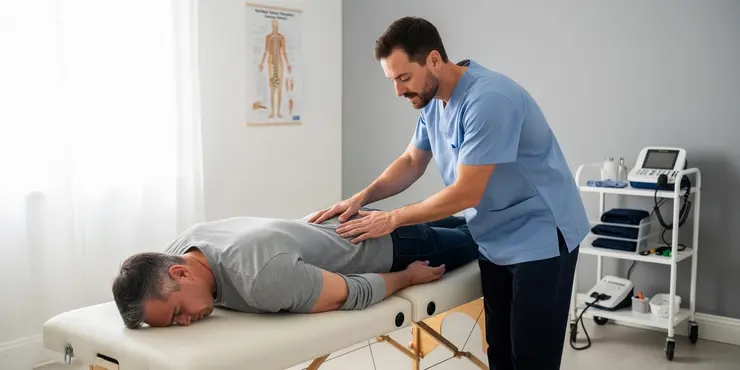
Are chiropractic treatments painful?
Relevance: 31%
-
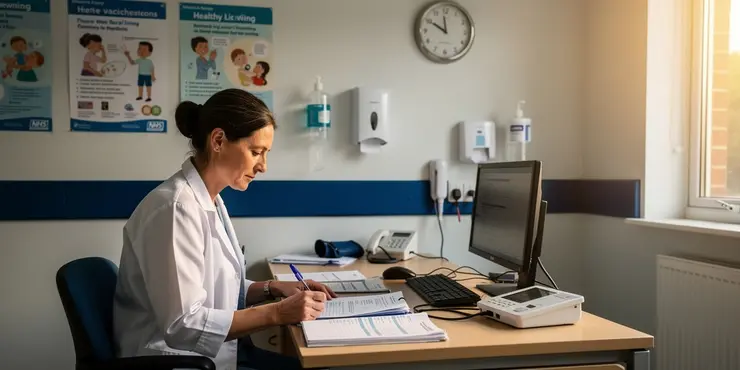
Can adults get chickenpox?
Relevance: 31%
-

What is the treatment for appendicitis?
Relevance: 31%
Antiviral Medications
For most people diagnosed with shingles, antiviral medications are the frontline treatment. Commonly prescribed antivirals include acyclovir, valacyclovir, and famciclovir. These medications are most effective when taken as soon as possible after the onset of the rash, ideally within 72 hours. They work by slowing the multiplication of the varicella-zoster virus, helping to reduce the severity and duration of symptoms. It's important to complete the full course of medication as prescribed by a healthcare provider to ensure optimal results.
Pain Relief Options
Pain associated with shingles can be quite severe and managing it is a crucial part of treatment. Over-the-counter pain relief, such as paracetamol or ibuprofen, is often recommended to ease discomfort. For more intense pain, a GP may prescribe stronger pain relievers, such as codeine or tramadol. Additionally, lidocaine or capsaicin topical creams might be suggested to numb the affected nerves and provide temporary relief. In some cases, a GP might consider prescribing anticonvulsants like gabapentin or pregabalin, or antidepressants such as amitriptyline for nerve pain management.
Managing Skin Rash and Itching
The shingles rash can cause itching and irritation. Applying calamine lotion or taking colloidal oatmeal baths can provide relief from these symptoms. Keeping the rash clean and dry is important to prevent infection. Sometimes, antihistamines might be recommended to help control itching. Wearing loose-fitting clothing made from natural fibers such as cotton can also help reduce irritation.
Postherpetic Neuralgia Management
After the shingles rash resolves, some people may continue to experience pain due to a condition called postherpetic neuralgia (PHN). For this long-lasting pain, treatments might include antidepressants, anticonvulsants, or pain relief patches containing lidocaine or capsaicin. PHN is especially challenging, and treatment plans are tailored to individual needs by healthcare specialists.
Preventive Measures and Vaccination
The best way to reduce the risk of developing shingles and its complications is through vaccination. In the UK, a shingles vaccine is offered to older adults as part of the NHS vaccination programme. The vaccine, called Shingrix, significantly lowers the risk of shingles and its associated long-term pain. Eligibility for vaccination is typically discussed with a GP, especially for those over the age of 70.
Consulting Healthcare Professionals
If you suspect you have shingles, it is important to seek medical advice promptly. Early diagnosis and treatment can greatly reduce the risk of complications and improve recovery outcomes. GPs or healthcare specialists can provide guidance on the most appropriate treatments based on individual health needs and the severity of the shingles outbreak.
Medicine for Shingles
When people have shingles, doctors give them medicine called antivirals. Some common ones are called acyclovir, valacyclovir, and famciclovir. These work best if taken very soon after the rash starts, ideally within 3 days. They help by stopping the virus from growing so the rash and pain are not as bad. It is important to take all the medicine as the doctor says.
Pain Relief
Shingles can hurt a lot, so pain relief is important. You can take paracetamol or ibuprofen, which you can buy at the store. For really bad pain, a doctor might give stronger medicine like codeine or tramadol. Creams like lidocaine or capsaicin can be put on the skin to help with pain. Sometimes, doctors may also give medicine like gabapentin, pregabalin, or amitriptyline to help with nerve pain.
Help for Skin Rash and Itching
The shingles rash can itch and bother you. Calamine lotion or oatmeal baths can help. Keep the rash clean and dry to stop infections. Sometimes, antihistamines can help stop itching. Wearing loose cotton clothes can also make you feel better.
Pain After Shingles
Even after the rash is gone, some people may still feel pain. This is called postherpetic neuralgia (PHN). To help with this pain, doctors might use antidepressant medicine, anticonvulsant medicine, or special pain patches. Because this pain is tricky, doctors will decide what’s best for each person.
How to Prevent Shingles
The best way to avoid shingles is to get a vaccine. In the UK, older adults can get the shingles vaccine from the NHS. It is called Shingrix. It helps stop shingles and the pain that can come with it. People often talk to their doctor about getting the vaccine, especially if they are over 70.
Talking to Healthcare Professionals
If you think you have shingles, see a doctor quickly. Getting help early can make the rash and pain less and help you get better faster. Doctors can tell you the best treatments for you and how much you need.
Frequently Asked Questions
What are the primary treatments for shingles?
The primary treatments for shingles include antiviral medications, pain management, and supportive care.
Which antiviral medications are commonly prescribed for shingles?
Common antiviral medications include acyclovir, valacyclovir, and famciclovir.
How do antiviral medications help in shingles treatment?
Antiviral medications help reduce the severity and duration of the shingles outbreak if taken within 72 hours of rash onset.
Can over-the-counter pain relievers be used to manage shingles pain?
Yes, over-the-counter pain relievers like ibuprofen and acetaminophen can help manage minor shingles pain.
Are there prescription pain relief options for shingles?
Yes, doctors may prescribe stronger pain medications, including opioids or gabapentin, for more severe pain.
What topical treatments are available for shingles?
Topical treatments such as calamine lotion or lidocaine patches may be used to soothe skin irritation and reduce pain.
Is there a vaccine available to prevent shingles?
Yes, the Shingrix vaccine is available and highly effective at preventing shingles and its complications.
What is the role of corticosteroids in shingles treatment?
In some cases, corticosteroids may be prescribed to reduce inflammation and pain, although their use is controversial.
Can shingles be treated with alternative therapies?
Some people use alternative therapies like acupuncture, herbal supplements, and vitamin therapy, but their efficacy varies.
Is hospitalization required for shingles treatment?
Hospitalization is rare and usually only necessary for severe cases or complications like disseminated zoster.
How effective are antiviral medications in treating shingles?
Antiviral medications are most effective when started early and can significantly reduce the duration and severity of an outbreak.
What supportive measures can help alleviate shingles symptoms?
Supportive measures include keeping the rash clean and dry, wearing loose clothing, and applying cool compresses.
Are home remedies effective in treating shingles?
While not a replacement for medical treatment, home remedies like oatmeal baths might provide symptom relief.
Can shingles cause long-term complications?
Yes, if not treated promptly, shingles can lead to complications such as postherpetic neuralgia, a chronic nerve pain.
When should someone seek immediate medical attention for shingles?
Immediate medical attention is needed if facial or eye symptoms occur, there's a weakened immune system, or the rash is spreading rapidly.
Can shingles be treated with antibiotics?
Antibiotics are not used to treat shingles since it is caused by a virus, but they might be prescribed if a bacterial infection develops.
How long does shingles treatment usually last?
Antiviral treatment generally lasts for 7 to 10 days, but pain management and recovery can take longer.
Can lifestyle changes help in managing shingles?
Yes, reducing stress, eating a balanced diet, and maintaining a healthy lifestyle can support the body's recovery during shingles.
What factors determine the choice of treatment for shingles?
Factors include the patient's age, overall health, severity of the rash, presence of complications, and time since onset.
Can pregnant women receive treatment for shingles?
Pregnant women should consult their healthcare provider to discuss safe treatment options for shingles.
What are the main treatments for shingles?
Shingles is a sore rash that can hurt. Doctors have ways to help make it better.
Medicines: Doctors can give you special medicine. These help stop the rash and pain.
Rest: It is important to take it easy. Rest helps your body get better.
Creams: Use special creams on the rash to make it hurt less.
Cool Cloths: A cool, wet cloth can help soothe the rash. This can make it feel better.
Support: If you find it hard to read about shingles, you can ask someone to read it with you or watch a simple video about it.
The main ways to treat shingles are:
- Taking medicine to fight the virus.
- Using things to help with pain.
- Getting extra care to feel better.
If you find reading hard, try using audiobooks or apps that read text out loud to help you understand better.
What medicines do doctors give for shingles?
Some medicines that fight viruses are called acyclovir, valacyclovir, and famciclovir.
How do antiviral medications help in treating shingles?
Antiviral medications are special medicines. They help to fight viruses in your body. For shingles, they can help you feel better faster and stop the virus from spreading.
If you have shingles, go to the doctor quickly. The doctor can give you antiviral medicines.
Tools that can help you understand more:
- Ask the doctor or nurse to explain in simple language.
- Use pictures or diagrams to see how the medicine works.
- Use audiobooks or videos about shingles for more information.
Medicine called antiviral can help make the shingles rash less painful and make it go away faster. It is best to take this medicine within 3 days after the rash starts.
Can you use store-bought pain medicine for shingles pain?
Yes, you can buy medicine for pain at the store. Medicines like ibuprofen and acetaminophen can help with small pains from shingles.
Can a doctor give medicine for shingles pain?
If you have shingles, a doctor can give you medicine to help with the pain. These medicines are called prescription pain relievers. They can make the pain feel better.
Here are some tips that might help:
- Ask your doctor about pain medicine.
- Take the medicine as the doctor says.
- Use a cool cloth on your skin to feel better.
It is important to talk to a doctor to get the right help.
Yes, doctors can give you stronger medicine for really bad pain. This can be medicine like opioids or gabapentin.
What creams can you use for shingles?
If you have shingles, you can use creams or lotions to help. These can make you feel more comfortable.
Here are some things that might help:
- You can use a cream to help with the itchiness.
- Sometimes, a special lotion can help the rash feel better.
If you’re not sure what to use, you can ask a doctor or a nurse. They can help you pick the right one.
It might also help to rest and drink plenty of water.
You can use special creams like calamine lotion or sticky pads with medicine called lidocaine. These help calm down your skin and make the pain go away.
Can you get a vaccine to stop shingles?
Yes, you can get the Shingrix shot. It stops shingles and works really well.
How do corticosteroids help treat shingles?
Sometimes, doctors might give medicine called corticosteroids. This medicine helps to make swelling and pain go away. People have different opinions about using this medicine.
Can other treatments help with shingles?
Shingles is a painful rash. It can make you feel very sick. Doctors have medicine for shingles, but some people want to try other things too. These are called alternative therapies.
Some people use creams with natural things in them to help the rash feel better. Others try things like relaxing exercises or soft music to feel calm. Always talk to a doctor before you try new treatments.
Here are some helpful ways to feel better:
- Use a cool cloth on your rash: This can help with pain.
- Take deep breaths to relax: This can help you feel less stressed.
- Listen to calm music: It might help you feel better.
- Ask someone to read to you: Listening can be easier than reading.
Some people try different kinds of treatments like acupuncture, taking special plants, and vitamins. These might help, but they don't always work the same for everyone.
Do you need to stay in the hospital to get help for shingles?
Going to the hospital is not common. You usually only need to go if the illness is very bad or if there are serious problems.
Do antiviral medicines help treat shingles?
Medicines that fight viruses work best if you take them early. They can help you get better faster and make the illness less serious.
How can we help make shingles feel better?
To help the rash get better, you can do a few easy things:
- Keep the rash clean. You can gently wash it with water.
- Keep the rash dry. Don't let it stay wet.
- Wear loose clothes. This means wearing clothes that are not tight. It will help your skin breathe.
- Put a cool, wet cloth on the rash. This can make it feel better.
Do home treatments work for shingles?
Oatmeal baths can help you feel better. But remember, they are not the same as seeing a doctor.
Can shingles cause problems for a long time?
Yes, if you do not get treatment for shingles quickly, it can cause problems like long-lasting nerve pain. This is called postherpetic neuralgia.
When should you see a doctor right away for shingles?
If you have shingles, go to the doctor quickly if:
- You have a rash near your eye. It can hurt your sight.
- Your skin feels very painful and blistered.
- You feel very sick with a high fever.
- The rash is spreading fast.
Talking to a doctor can help you feel better. You can ask someone you trust to go with you to the doctor.
Using voices or apps that read text out loud can help you understand more. You can also ask someone to explain difficult words.
Go to the doctor right away if your face or eyes hurt, if you get sick a lot, or if the rash is getting bigger fast.
Can you use antibiotics to treat shingles?
Shingles is a skin infection caused by a virus, not bacteria. So, antibiotics are not used to treat shingles. Medicine for viruses, called antiviral medicine, can help.
If you think you have shingles, see a doctor. The doctor can give you the right medicine. Get plenty of rest and take care of your skin.
Tools that might help you learn more:
- Use picture books about health.
- Watch videos for kids about shingles.
- Ask someone to explain in simple words.
Antibiotics are medicine that fight bacteria, not viruses. Shingles is caused by a virus, so antibiotics won't help. But if you get a germ infection too, the doctor might give you antibiotics.
How long do you take medicine for shingles?
Medicine to fight a virus usually lasts for 7 to 10 days. But feeling better and getting rid of pain can take more time.
Can changing how you live help with shingles?
You can try some easy things to help with shingles. Here are some ideas:
- Get lots of rest to help your body heal.
- Eat healthy foods like fruits and vegetables.
- Keep your skin clean and dry to feel better.
- Try not to scratch your skin, even if it's itchy.
- Talk to a doctor or nurse about helpful medicine.
If you need help reading or understanding, you can ask someone to read it with you.
Yes, you can help your body get better from shingles by doing a few things:
- Try to relax and keep your stress levels low.
- Eat healthy foods like fruits and vegetables.
- Live a healthy life by resting well and staying active.
These things can make your recovery from shingles easier.
What helps decide how to treat shingles?
Things to think about are how old the person is, how healthy they are, how bad the rash is, if there are any other problems, and how long they have had the rash.
Can pregnant women get help if they have shingles?
If you are pregnant and have shingles, talk to your doctor. They will help you find safe ways to treat it.
Useful Links
This website offers general information and is not a substitute for professional advice.
Always seek guidance from qualified professionals.
If you have any medical concerns or need urgent help, contact a healthcare professional or emergency services immediately.
Some of this content was generated with AI assistance. We’ve done our best to keep it accurate, helpful, and human-friendly.
- Ergsy carfully checks the information in the videos we provide here.
- Videos shown by Youtube after a video has completed, have NOT been reviewed by ERGSY.
- To view, click the arrow in centre of video.
- Most of the videos you find here will have subtitles and/or closed captions available.
- You may need to turn these on, and choose your preferred language.
- Go to the video you'd like to watch.
- If closed captions (CC) are available, settings will be visible on the bottom right of the video player.
- To turn on Captions, click settings .
- To turn off Captions, click settings again.
More Items From Ergsy search
-

What treatments are available for shingles?
Relevance: 100%
-

What treatments are available for shingles?
Relevance: 99%
-

What is shingles?
Relevance: 85%
-

What is Shingles?
Relevance: 84%
-

Is shingles contagious?
Relevance: 81%
-

What causes shingles?
Relevance: 80%
-

Can shingles be prevented?
Relevance: 78%
-

How is shingles diagnosed?
Relevance: 78%
-

What causes shingles?
Relevance: 78%
-

Is shingles contagious?
Relevance: 77%
-

Are there any complications associated with shingles?
Relevance: 76%
-

Can stress trigger shingles?
Relevance: 76%
-

What are the symptoms of shingles?
Relevance: 76%
-

Are there any complications associated with shingles?
Relevance: 75%
-

Is the shingles vaccine safe?
Relevance: 74%
-

Can shingles be prevented?
Relevance: 74%
-

Who is at risk of developing shingles?
Relevance: 74%
-

Can stress trigger shingles?
Relevance: 74%
-

Can the shingles vaccine cause chickenpox?
Relevance: 70%
-

Can the shingles vaccine cause chickenpox?
Relevance: 69%
-

At what age should one get the shingles vaccine?
Relevance: 67%
-

At what age should one get the shingles vaccine?
Relevance: 65%
-

How is shingles diagnosed?
Relevance: 57%
-

Who is at risk of developing shingles?
Relevance: 51%
-

What should I do if I think I have shingles?
Relevance: 51%
-

How long does a shingles outbreak last?
Relevance: 50%
-

How long does a shingles outbreak last?
Relevance: 49%
-

What is postherpetic neuralgia?
Relevance: 45%
-

What is postherpetic neuralgia?
Relevance: 43%
-

What are the symptoms of shingles?
Relevance: 34%
-

What is the treatment for chickenpox?
Relevance: 34%
-

Having chemotherapy and other treatments in the Day Treatment Unit
Relevance: 32%
-
Is there a treatment for measles?
Relevance: 32%
-

Is there a treatment for measles?
Relevance: 31%
-

Are chiropractic treatments safe?
Relevance: 31%
-

Can you get chickenpox more than once?
Relevance: 31%
-

Is Botox treatment expensive?
Relevance: 31%
-

Are chiropractic treatments painful?
Relevance: 31%
-

Can adults get chickenpox?
Relevance: 31%
-

What is the treatment for appendicitis?
Relevance: 31%


